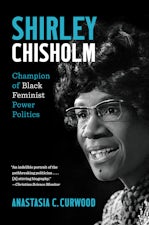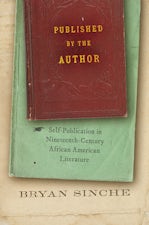Insurgent Cuba
Race, Nation, and Revolution, 1868-1898
By Ada Ferrer
288 pp., 6 x 9, 12 illus., 2 tables, 2 maps, notes, bibl., index
Not for Sale in the Caribbean
-
Paperback ISBN: 978-0-8078-4783-1
Published: October 1999 -
E-book EPUB ISBN: 978-0-8078-7574-2
Published: October 2005 -
E-book PDF ISBN: 979-8-8908-7071-1
Published: October 2005
Buy this Book
- Paperback $42.50
- E-Book $29.99
For Professors:
Free E-Exam Copies
Awards & distinctions
1999 Berkshire Prize, Berkshire Conference of Women Historians
Ada Ferrer examines the participation of black and mulatto Cubans in nationalist insurgency from 1868, when a slaveholder began the revolution by freeing his slaves, until the intervention of racially segregated American forces in 1898. In so doing, she uncovers the struggles over the boundaries of citizenship and nationality that their participation brought to the fore, and she shows that even as black participation helped sustain the movement ideologically and militarily, it simultaneously prompted accusations of race war and fed the forces of counterinsurgency.
Carefully examining the tensions between racism and antiracism contained within Cuban nationalism, Ferrer paints a dynamic portrait of a movement built upon the coexistence of an ideology of racial fraternity and the persistence of presumptions of hierarchy.
About the Author
Ada Ferrer teaches Latin American and Caribbean history at New York University.
For more information about Ada Ferrer, visit
the
Author
Page.
Reviews
"An admirable book; Ada Ferrer has attentively examined the dynamics between the racial groups involved in Cuba’s struggle towards independence. . . . [She] meticulously documents these struggles and provocatively reinterprets them. Most impressive is her ability to keep her analytical eye close to the Cuban ground."--Times Literary Supplement
"Ferrer's book is a significant contribution to the historiography on race and race relations in Cuba, its revolutionary movements, and on the construction of Cuban nationhood. . . . An insightful study on Cuba's subaltern population and the role it played in constructing the Republic of Cuba. It should be read in courses on race relations and independence movements in Latin America and the Caribbean."--American Historical Review
"[This] study combines in-depth archival research in Cuba with a judicious use of more recent writing on race, nationalism, and postcolonial theory. Ferrer is particularly successful at showing how notions of freedom, citizenship, race, labor, and cubanidad were all contested social constructs that were forged in the context of Cuba's two wars for independence."--Latin American Research Review
"This book is the best overview in English of the role of race in the Cuban independence movement. . . . This book makes clear both the great accomplishments in day-to-day race relations that were achieved and the deep structures of race that still stood when the Yankees intervened."--Journal of American History
"This is a painful story that has never been told before, because race has never been placed so squarely at the center of the Cuban revolution, where it belongs. Ferrer cuts against the grain of a romantic, nationalist Cuban historiography that tends to see only what was inclusive and progressive in the wars for liberation. Anyone who wants to understand modern Cuba should read Ferrer’s account of the Cuban insurgency."--Journal of Military History
"[An] important analysis of race in early Cuban nationalism."--Choice




